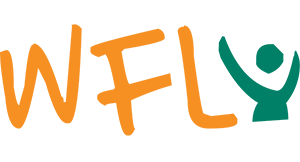Our founding program, Waste for Life, aims to reduce the damaging environmental impact of non-recycled plastic waste products and to promote self-sufficiency and economic security for at-risk populations who depend upon waste to survive. We use scientific knowledge and low-threshold/high-impact technologies to add value to resources that are commonly considered harmful or without worth but are often the source of livelihood for society’s poorest members. Our twin goals are to reduce the damaging environmental impact of non-recycled plastic waste products and to promote self-sufficiency and economic security for at-risk populations who depend upon waste to survive.
Our work in Argentina began as a set of hypothetical question to ourselves: would it be possible to share our specialised knowledge about waste plastics and fibres with people who depend upon waste to survive? And, if so, could this knowledge be transformative? Would it open up pathways toward more economic autonomy and security, reinforce the tenets of cooperativism, influence the relationship of garbage scavengers to the society from which they scavenged, alter the pejorative connotations that swirled around waste? These were heady questions, and this short video gives you a flavour of our early days looking for their answers.
